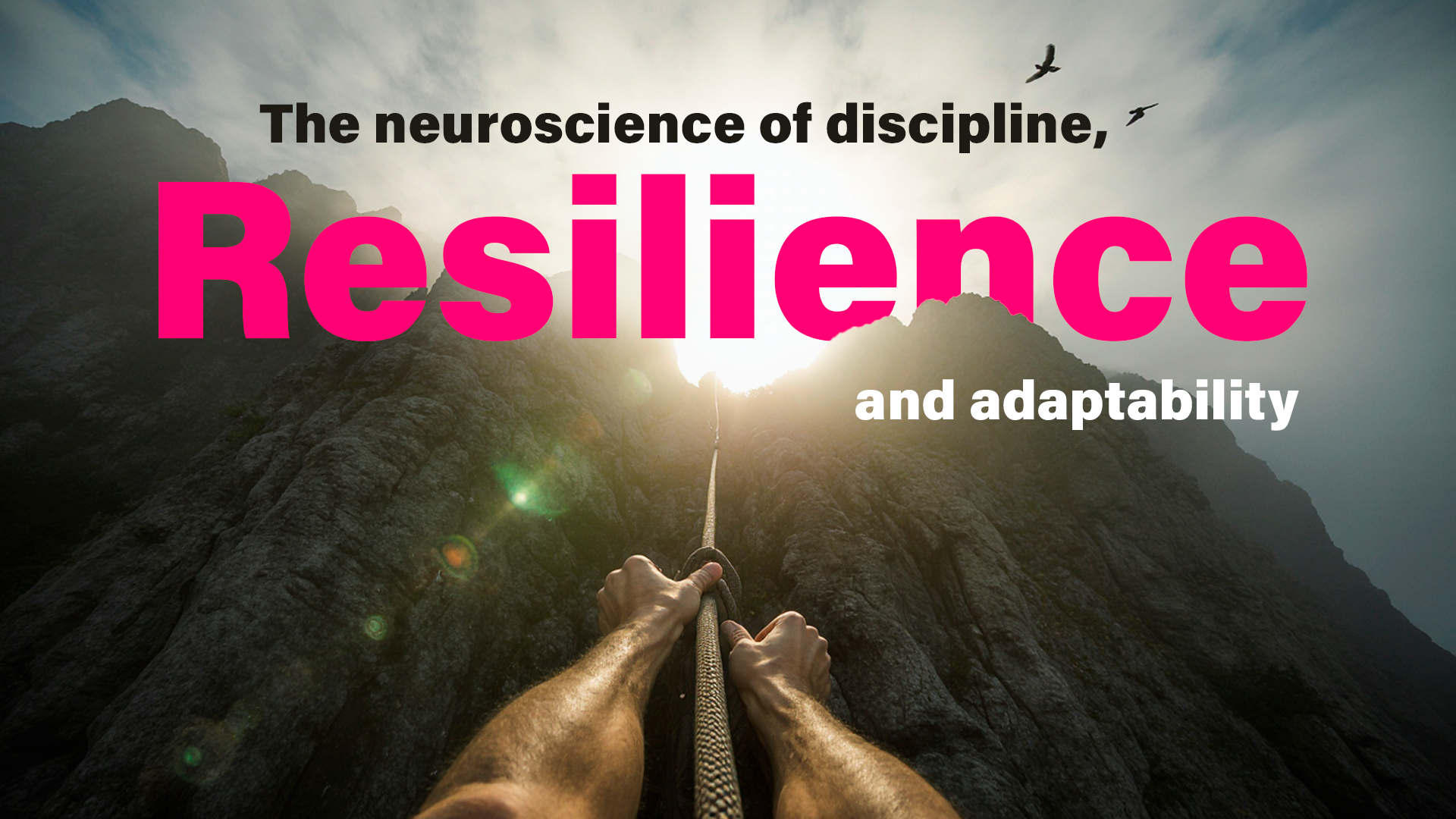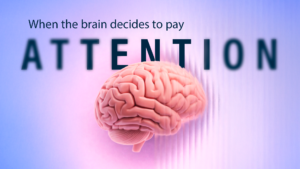
Exploring the brain’s role in sustaining effort, managing discomfort, and enhancing adaptability in high-performance corporate environments
The neuroscience of discipline, resilience, and adaptability is reshaping how we understand leadership, performance, and change in corporate environments.
In the corporate world, discipline is often celebrated as the cornerstone of success. Leaders who maintain focus, employees who deliver under pressure, and teams that adapt to constant change are recognized as the driving forces behind organizational growth. But what if discipline and adaptability were not merely matters of personality or willpower? What if neuroscience could explain why some individuals can sustain effort in the face of discomfort while others struggle?
Recent advances in cognitive neuroscience suggest exactly that. A study published in PLOS Biology (Fouragnan et al., 2022) sheds new light on the role of the anterior cingulate cortex (ACC)—a critical brain region that supports discipline, resilience, and adaptability in the face of demanding challenges. This discovery holds significant implications for how we understand leadership, performance, and resilience in the business world.
The Anterior Cingulate Cortex: The Brain’s “Discipline Hub”
The anterior cingulate cortex, located in the frontal part of the brain, has long been associated with cognitive control, error detection, and emotional regulation. However, the study led by Fouragnan and colleagues demonstrates causally that the ACC is essential for what we might call flexible discipline—the capacity to sustain attention and effort when tasks are both motivationally challenging and cognitively demanding.
In practical terms, the ACC is what helps us do what we know must be done, even when we don’t feel like doing it. Sending a difficult email, preparing a high-stakes presentation, or addressing conflict with a colleague are everyday corporate examples of the ACC at work.
The research revealed that when ACC function is disrupted, our ability to learn under difficult conditions and maintain focus decreases. Conversely, when the ACC is functioning optimally, individuals can sustain discipline, show resilience, and adapt quickly to unexpected circumstances.
Why This Matters for Business
Today’s corporate environment is marked by volatility, uncertainty, complexity, and ambiguity (VUCA). Organizations constantly face disruption—whether adapting to new technologies, redesigning business models, or responding to global crises. Professionals must sustain effort in scenarios filled with discomfort and uncertainty.
The findings on the ACC are particularly relevant because they suggest that discipline is not merely a matter of self-control or personal grit but rather of how effectively the brain regulates attention and motivation under pressure. This offers three powerful implications for business:
- Leadership training must go beyond motivation. Traditional models focus heavily on motivation and goal-setting. While valuable, these approaches overlook the neural mechanisms that allow discipline to be sustained. Leaders must also train their ACC through practices such as mindfulness, controlled exposure to discomfort, and deliberate practice.
- Resilience is a trainable skill. The study shows that resilience—the ability to “bounce back” after difficulties—relies on the brain’s ability to re-engage under challenging conditions. This reframes resilience not as a fixed trait but as a neural competence that can be strengthened.
- Adaptability is the new competitive edge. In rapidly changing industries, those who adapt the fastest will succeed. Strengthening the ACC not only improves the ability to endure discomfort but also enhances learning and the capacity to respond strategically to change.
Practical Applications: Training Discipline in the Corporate World
How can these discoveries be translated into daily workplace practice? The key lies in micro-challenges that deliberately and gradually expose the brain to discomfort, strengthening the ACC over time.
Practical strategies include:
- The 2% rule. Instead of attempting radical changes, increase your effort by just 2% in tasks you usually avoid. If you delay giving difficult feedback, do it today in a short conversation. If you avoid complex reports, start by writing a single page. Small progress trains the brain to sustain discipline.
- Discomfort blocks. Dedicate 30 minutes a day to tasks you would typically postpone. Over time, your brain becomes more efficient at regulating attention and motivation during these periods, strengthening discipline and adaptability.
- Reflection and reframing. After completing a difficult task, reflect: Was the discomfort as long-lasting as expected? Did you adapt better than you thought? This conscious analysis reinforces neural learning and makes discipline a repeatable pattern.
Toward Neuroscience-Based Corporate Training
Forward-thinking companies are beginning to incorporate neuroscience into leadership and workforce development programs. Understanding the role of the ACC enables the design of interventions that move beyond motivation to directly train the brain.
Examples include:
- Resilience workshops that use cognitive exercises to help employees sustain focus during discomfort.
- Leadership programs that integrate mindfulness practices and stress regulation, both of which optimize ACC functioning.
- Performance evaluations that acknowledge not only outcomes but also the strategies used to sustain effort under pressure.
Final Reflection: Discipline as a Neural Investment
Traditionally, discipline has been framed as a battle of willpower or motivation. Neuroscience provides a different lens: discipline, resilience, and adaptability are reflections of how effectively the anterior cingulate cortex functions.
Each time you choose to face discomfort and act rather than delay, you are not merely completing a task—you are training your brain to become more disciplined, more resilient, and more adaptable.
For leaders and organizations, this means the future of performance will not rely solely on inspiring people but on helping them train their brains to thrive in discomfort. That is today’s real competitive advantage.
Reference
Fouragnan, E., Wittmann, M. K., Lockwood, P. L., Kluen, L., Dores, M., Komorowski, R. W., … & Rushworth, M. F. (2022). Anterior cingulate cortex causally supports flexible learning under motivationally challenging and cognitively demanding conditions. PLOS Biology, 20(9), e3001785. https://doi.org/10.1371/journal.pbio.3001785
Frontiers in Psychology
Continue reading more articles: https://neurobusiness.us/blog/


